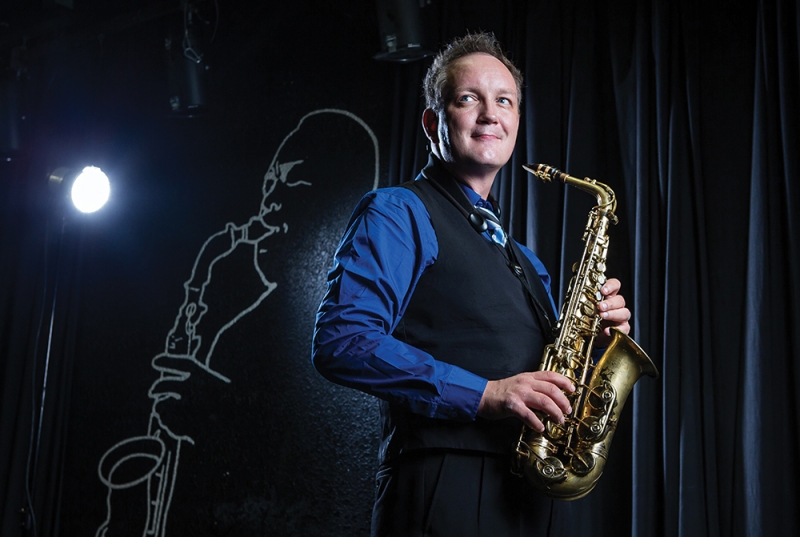Age: 39
Job Title: Freelance musician
Why He’s Top 40: For continuing to promote and cultivate the city’s professional music scene, while teaching music to people recovering from drug addiction.
What Do You Like Most About Edmonton?: “Its deep arts heritage and world-class surroundings and facilities.”
When most people discover Don Berner is a career jazz musician, the first question they ask is if he can make a living at that. Not only does Berner make a living, but he’s made a career out of breaking the stereotypes of the typical jazz musician.
“I don’t wear a fedora, I don’t wear zoot suits, and I don’t sleep in till noon,” says Berner. He’s a regular performer at the Edmonton Jazz Festival, served as its co-producer for two years, and has been a featured performer at the Montreal Jazz Festival. He’s also played alongside the Temptations, and performed at the Festival Internacional Cervantino in Mexico, to name only a few accomplishments.
However, Berner’s influence is best felt at home. He’s served as host for CKUA‘s A Time for Jazz, and wrote a similarly themed column for the now-defunct SEE Magazine. Berner has also spent a lot of effort living up to one of his heroes: Tommy Banks, the pianist-turned-television-host-turned-senator who gave Berner one of his first big shows on the bandstand.
“I’m trying to continue creating the opportunities that he did,” says Berner, “by playing as much as I can, educating audience members and fellow musicians, and creating opportunities for fellow musicians – particularly younger ones.”
Berner’s personal project, Horns for Hope, works with the Hope Mission drug recovery program. Participants of the program are paired with more than 50 local musicians to learn teamwork, accountability, and organizational skills by learning to play in a band. Berner’s experience with the project had a much deeper personal affect than expected.
